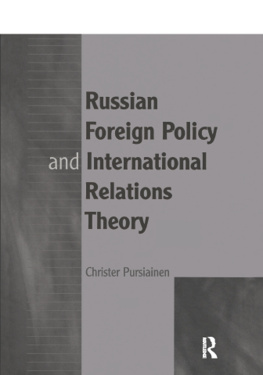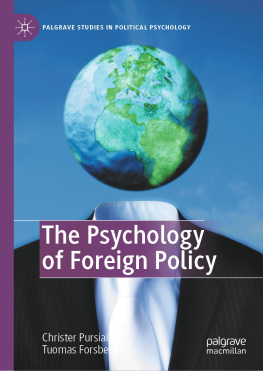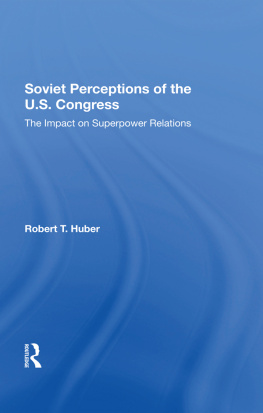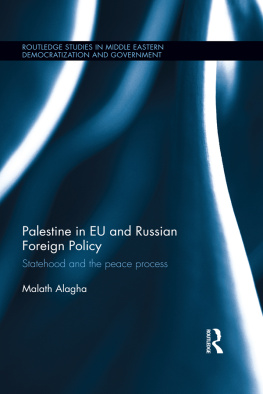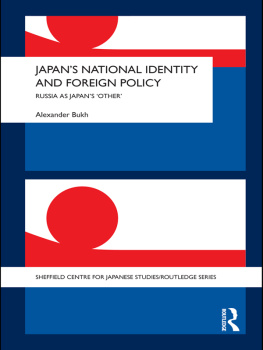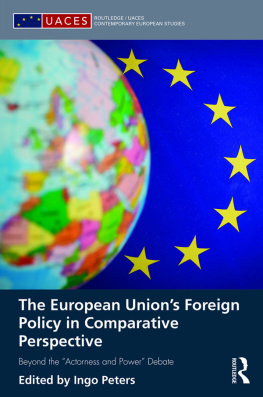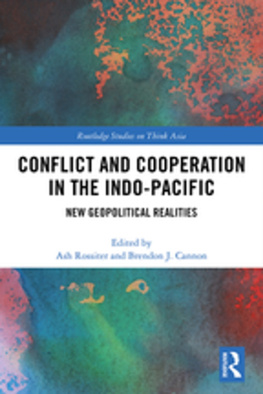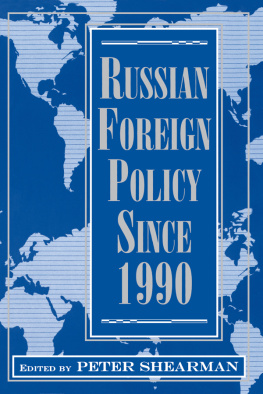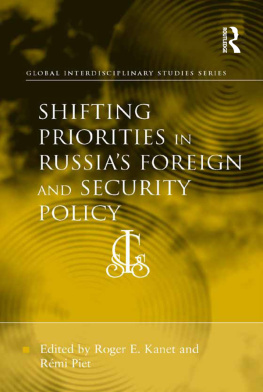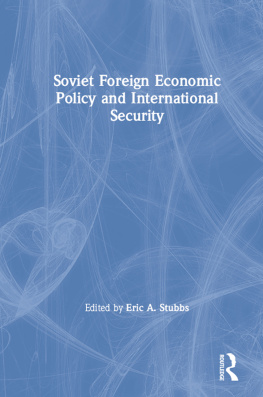RUSSIAN FOREIGN POLICY AND INTERNATIONAL RELATIONS THEORY
To my wife
Russian Foreign Policy and International Relations Theory
CHRISTER PURSIAINEN
The Finnish Institute of International Affairs
First published 2000 by Ashgate Publishing
Published 2017 by Routledge
2 Park Square, Milton Park, Abingdon, Oxon OX14 4RN
711 Third Avenue, New York, NY 10017, USA
Routledge is an imprint of the Taylor & Francis Group, an informa business
Copyright Christer Pursiainen 2000
All rights reserved. No part of this book may be reprinted or reproduced or utilised in any form or by any electronic, mechanical, or other means, now known or hereafter invented, including photocopying and recording, or in any information storage or retrieval system, without permission in writing from the publishers.
Notice:
Product or corporate names may be trademarks or registered trademarks, and are used only for identification and explanation without intent to infringe.
British Library Cataloguing in Publication Data
Pursiainen, Christer
Russian foreign policy and international relations theory
1. Russia (Federation) - Foreign relations 2. Soviet Union - Foreign relations
I. Title
327.47
Library of Congress Control Number: 00-132611
ISBN 13: 978-0-7546-1195-0 (hbk)
Contents
This study is a synthesis of several years investigations in the fields of Soviet and Russian foreign policy studies and in International Relations theory. Its earlier version was a dissertation defended at Helsinki University in January 1999 and published under the title Beyond Sovietology. International Relations Theory and the Study of Soviet/Russian Foreign and Security Policy, Helsinki: The Finnish Institute of International Affairs 1998. The current work is a considerably shortened and partially rewritten version of the dissertation, particularly leaving out the case studies of the dissertation. The reason for this abridgement is that in its present form the study better serves students of both Russian politics and International Relations as a general textbook, and, hopefully, will also inspire scholars of Russian foreign policy to further debates about the present state and future perspectives of the field. In addition to the dissertation, earlier versions of some parts of this study were also published as separate papers. A considerably shorter version of Chapter 3 was published under the title The Heritage of Soviet Foreign Policy Studies in the Finnish Review of East European Studies 2/1995. Parts of Chapter 4 are included in a different form in an article entitled The Impact of International Security Regimes on Russias Behavior: the Case of the OSCE and Chechnya as a chapter of the Pennsylvania State University Press 1999 volume Understandings of Russian Foreign Policy, edited by Ted Hopf.
In the course of years, I have greatly benefited from the criticism of, and comments and encouraging suggestions on the earlier versions of the study, as well as from long and inspiring discussions with my colleagues on the themes of this work. Without all that, this monograph would not have become what it is now. I would especially like to extend my gratitude to Roy Allison, Tuomas Forsberg, Harto Hakovirta, Henrikki Heikka, Ted Hopf, Jyrki Iivonen, Timo Kivimaki, Markku Kivinen, Margot Light, Raimo Lintonen, Heikki Patomaki, James Richter, and Tapani Vaahtoranta. I also wish to thank Mark Waller and Brendan Humphreys for checking my English text.
Besides the intellectual support, I have also been lucky to work within institutionally and financially secured circumstances. At the beginning of my work I received a grant from the Emil Aaltonen Foundation, which enabled me to write a background paper for this study. More intensive work started in 1995 at the Finnish Institute of International Affairs (FIIA), where my work was funded for the first three years by the Academy of Finland and after that by the institute itself. I am especially grateful to these institutions, and to the excellent staff of FIIA, who made it possible for me to carry out this project.
Helsinki, December 1999
Christer Pursiainen
Any social scientific field needs self-reflection. In the case of Russian foreign policy studies the necessity of self-reflective evaluation is even more obvious. Like the Soviet Union itself, this field of study, or its predecessor Soviet foreign policy studies, underwent a sudden collapse, and is still in the throes of a major transition. After some years of experience of Russian foreign policy studies, the basic problem of the field has not been thoroughly discussed, nor has it become less relevant: how to move from a pragmatic and partially isolated area-oriented field to a more integrated part of the discipline of International Relations?1
The study of Soviet foreign policy was a part of an area-oriented research field known as Communist studies, Soviet studies, or simply Sovietology. It was commonly observed that Sovietology was a rather conservative, old-fashioned, and non-scientific genre of study, and often behind the general developments in social sciences. As late as 1990 we were told:
Ironically, although most contemporary Sovietologists are political scientists, most of the Sovietology they practice is not contemporary political science. Instead, contemporary Sovietology represents an awkward amalgam of data collection, policy analysis, and journalism that is as divorced from scholarship as sense impressions are from theory.2
One of the reasons why this was claimed was because Sovietology was characterised by an overwhelming politisation.3 Indeed, many Sovietologists traditionally openly defined their main task to be to inform and advise [Western] foreign ministries, prime ministers and presidents, the scholarly community, and a vast world of newspaper readers, equipped with up to the minute information,4 instead of carrying out pure social scientific research. Although not everything was that simple, one might still claim, that by straddling area studies and social sciences, Sovietology showed all the symptoms of a discipline divided, in which the specific features of the communist system and the Soviet Union coexisted uncomfortably with social science theories.5
In the present situation, the heritage of Sovietology is carried on in a field that is often called post-Sovietology; the field does not yet have a name of its own.6 However, the collapse of the Soviet Union as a territorial entity, the breakdown of the communist economic and political systems in the previous Soviet bloc countries, plus the break up of the Warsaw Treaty Organisation make us wonder whether there really is any longer a field as such. One might even ask whether one should exist in the sense that Sovietology existed, that is, with its own world conferences, journals and institutes, with its own theoretical debates, and often with its own special methodologies. Today, most of the idiosyncracies that had justified the special nature of the field seem to have disappeared, and the boundaries of post-Sovietology are much more obscure than those of Sovietology.
In focusing on Russia, this study starts from the assumption that scholars analysing that country should not completely abandon the tradition of intra-field debates about the basic problems of this area of study. The great confusion that took place within the field after the changes of the recent past cannot be resolved merely by proclaiming a unification with social science theories. If this were to become reality, a true intra-field theoretical discussion would first be needed. Moreover, not only can theoretical debates within social sciences deepen the insights of Russian studies, but also the particularities of this area-oriented field may enrich the respective social sciences. What is needed, is a mutually beneficial relationship between post-Sovietological studies and the respective social science theories. Thus, we propose here a reading of Russian foreign policy from the perspective of International Relations theory,7 and vice versa.

